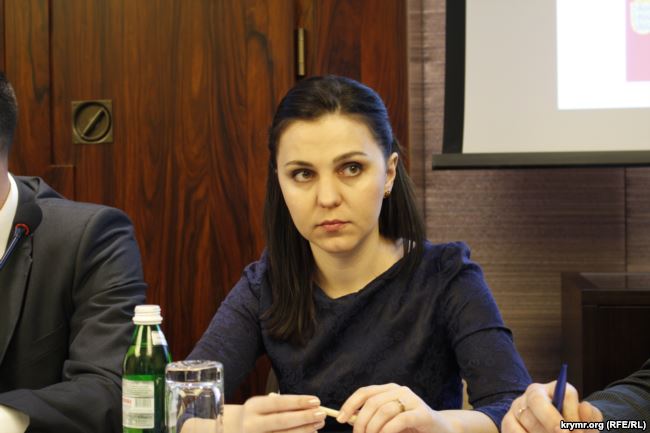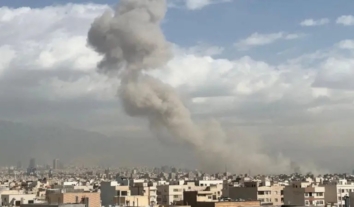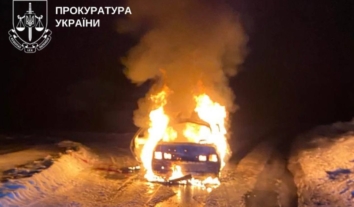The Verkhovna Rada might consider four laws which violate human rights
The proposal for the agenda of the Verkhovna Rada on July 13 includes bills under the numbers 2126a and 6688 concerning information security and can limit freedom of speech and two scandalous presidential bills 6674 and 6675 aimed at strengthening control over public organizations.
People’s Deputy Olga Chervakova reported about the danger of the project on information security on her Facebook page.
According to the draft law, it is proposed to consider “influence on the adoption of decisions or commission or failure of actions by State authorities or local self-government bodies, officials of these bodies, citizens’ associations, legal entities” as threats to national security in the field of information. The authors of the bill propose to consider this a part of “technological terrorism”.
The SBU is given the right to block access to any information resource with the help of the provider without a court decision. The basis for this may be the decision of the prosecutor, the decision of the investigator approved by the prosecutor, or the decision of the National Security and Defense Council.
“It is obvious that with the adoption of this law Nayem, Leshchenko and everyone who, tomorrow, will demand the abolition of parliamentary immunity at the Verkhovna Rada will become “technological terrorists”. Since they will exercise influence on the State government body”, – Chervakova wrote.
Furthermore, as noted by Chervakova, all information resources covering these events will be candidates for closure.
In addition, on Thursday the Verkhovna Rada will discuss the bill on the cybersecurity overall.
“The amendment of Deputy Ruslan Lukyanchuk (Popular Front faction) in the transitional provisions amends the Law “On Information” – proposes to introduce a new concept – “technological information”. This is information on all technological processes in any sectors of the economy, as well as information on processes that adversely affect the health and safety of people, the state of the environment, economic, political, social stability of public relations or conducting activities by business entities. That is, about everything”, – Chervakova wrote.
She noted that the of the same content was introduced by the government of Arseniy Yatsenyuk, but he received a negative opinion from the committee on freedom of speech and information policy and was not admitted to voting.

At the same time, Tetiana Pechonchyk, Chair of the Board of the Human Rights Information Centre, underlines the risks of adopting bills under numbers 6674 and 6675.
“Today, the Rada will once again try to tighten the nuts and restrict the work of public organizations in Ukraine. Since the very morning the daily agenda includes another attempt to introduce two presidential draft laws – 6674 and 6675. They are being proposed to replace scandalous laws on e-declaration for anti-corruption activists, but in truth this new legislation is worse”, – Pechonchyk wrote on her Facebook page.
She appeals to the deputies not to vote for these laws.
After all, first of all, according to her, “the draft laws create a convenient tool for the State to crack down the unsuitable public organizations. It is proposed to create levers of influence on the public by setting additional obligations for regular reporting. In addition, the drafts offer considerably radical measures in case of violations – excluding non-profit organizations from the register, which practically blocks the activities of public organizations”.
She reminds that currently public organizations are already submitting the following reports to the State: on the use of revenues by the public organization in the period of 60 calendar days of the next reporting year, the financial report, the activity report of the public organization (once a year to statistical bodies), the tax calculation of the amounts of income accrued (paid) in favor of private individuals, and the amount of tax withheld from them (each quarter to the fiscal authorities), a report on the amounts of accrued wages (income, monetary security, assistance, compensation), insured persons and the amounts accrued single contribution for compulsory state insurance (fiscal). In addition, if the public organization receives the funds from international donors, it must report separately for each spent penny.
Secondly, as the human rights defender emphasized, the bill jeopardizes and makes the work of public organizations impossible in the conflict zone, for example, in occupied Crimea.
“All those who collect and document human rights violations, help victims, provide legal advice, defend them in so-called courts. While the State of Ukraine itself can not protect the rights of its citizens in the occupied peninsula, no international organization (UN, OSCE, Council of Europe) has access to it, it would seem that the human rights organizations perform impossible work. It is clear that such work is predominantly confidential in order to protect those who work directly in Crimea”, – wrote Tetiana.
According to her, in this context, the requirement to publish a list of 10 employees of public organization who receive the highest salaries in the organization, as well as data on other counterparties, will become a find for the Russian FSB and will put undue and unjustified risk on the organizations’ work in the conflict zone. Public organizations will have to either wind down their work there, or break the law to protect their activists, which in the end will lead to the loss of the status of non-profitability and put an end to their work.
In addition, such a requirement is incomprehensible, because the State and fiscal authorities already have data on salaries of employees and paid taxes.















